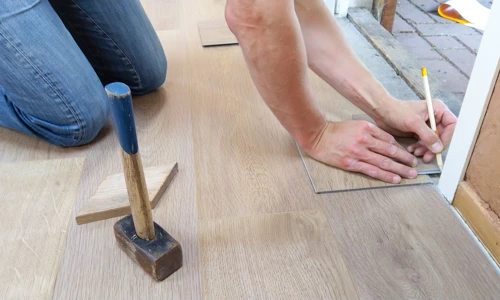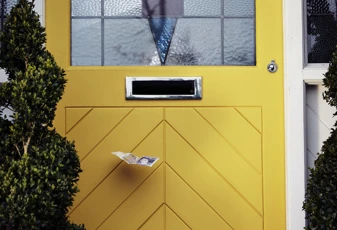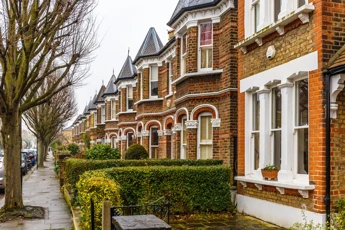If you've been the owner of your current home for a while, you've probably thought about updating your living space. Why not join the many individuals who are choosing to expand and improve existing houses rather than relocate somewhere new?
The good news is that finding money for your remodelling project can be simpler than you think. Remortgaging may be the right way for you to pay for renovation expenditures, regardless of whether you're planning a loft conversion or an extension for a new home office.
How can I remortgage my property to make improvements?
The process of securing a new mortgage from a lender to replace your current deal is referred to as remortgaging. The equity in your property can be accessed through a remortgage if you're thinking about making changes. The expenditures associated with the refurbishment can then be paid for using the freed equity.
There are a few things to think about if you're considering remortgaging to pay for home improvements. For instance, you could have to pay an early repayment charge if you wish to cancel your current mortgage agreement before it expires. Before you decide anything, find out whether that's the case because you'll need to account for it in your budget.
You might also need to factor in any extra charges. There may be a number of expenses associated with getting a mortgage, such as arranging fees, valuation fees, and booking fees. You should factor this into your calculations as well.
What if I wish to finance my renovations through my current lender?
Consider extra borrowing from your current mortgage provider as a funding option for your restoration project. If you're locked into a fixed-term mortgage and would have to face early repayment charges if you switched plans before it was through, this could be a suitable choice.
Before making any decisions, we suggest you talk to a mortgage adviser about what will work best for your particular situation.
What advantages do renovations bring?
When thinking about renovating, one of the major concerns you'll have to answer is how much value you may potentially add to your property. It can also be a great way to move up the property ladder without having to relocate (if the renovation raises the home's total value).
Keep in mind that the sort of renovations you make will have a significant impact on the value of your house. It's important to conduct some research before moving forward with any improvements to ensure that you aren't harming the market value of your house.
For instance, adding a bedroom might cost a lot of money, especially if it contains a bathroom. You must solidify your final goal and decide whether the outcome is worth it, especially because certain additions (like enlarging the living room) may be less lucrative.
We recommend speaking with your estate agent to work out the existing value of your house as well as its prospective value when the renovation is finished. You may also look for comparable homes in and around your neighbourhood that have undergone similar improvements to see how much they sold for.
How else might I pay for the remodelling?
You should consider your total financial status before making any judgments about how to support your project. You can think about using your savings if you have enough money to pay for the refurbishment or you could consider a loan, though this could come with its own costs..
There are many things to consider, but as long as you do your homework and balance the advantages and disadvantages, you'll be in a strong position to determine whether or not renovation is the best course of action for you and your residence.
If you do want to consider remortgaging, then get in touch with one of our friendly advisers to discuss your options!
Want to talk mortgages?
Get real advice from real people. From mortgages to protection insurance, we’re here for you. Talk to us today and let’s work together to find a mortgage that’s right for you.
Important information
Your home may be repossessed if you do not keep up repayments on your mortgage. There may be a fee for mortgage advice. The actual amount you pay will depend upon your circumstances. The fee is up to 1%, but a typical fee is £295. Fee free advice for all new build purchases.
Read our other articles
Top ten money-saving tips
Saving money makes opening a savings account a bit simpler and helps your money go further.
Shared Ownership scheme uncovered
Fancy owning your home, but making a more modest deposit?
How to raise your credit rating
Your credit score has a significant influence on how you get access to credit lines, such as loans, credit cards, and mortgages.
What you should know about 95% mortgages
If you have a small deposit saved up, you may be able to qualify for a 95% mortgage.
What happens to your property after your divorce? FAQs
Following a divorce, many couples have numerous questions about their property, and what will happen now that they are breaking up.
What your mortgage adviser needs for your appointment
The more prepared you are for your mortgage appointment, the better we’ll be able to assist you.
Understanding mortgage affordability assessments
When applying for a mortgage, you’ll need to undergo an affordability assessment to ensure you can meet your monthly repayments with ease.
Everything you need to know about your mortgage appointment
Are you stepping into the world of homebuying for the first time? Maybe it’s been a while since you last spoke to an adviser, and you aren’t sure what to expect? We’ve got you covered…








